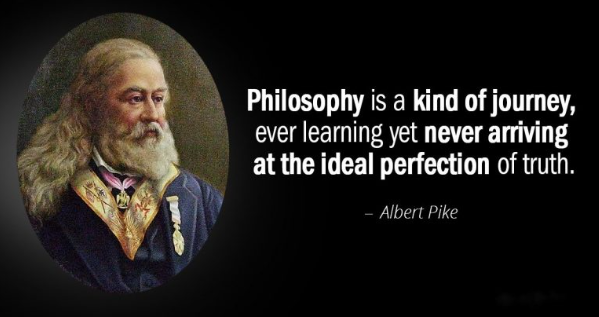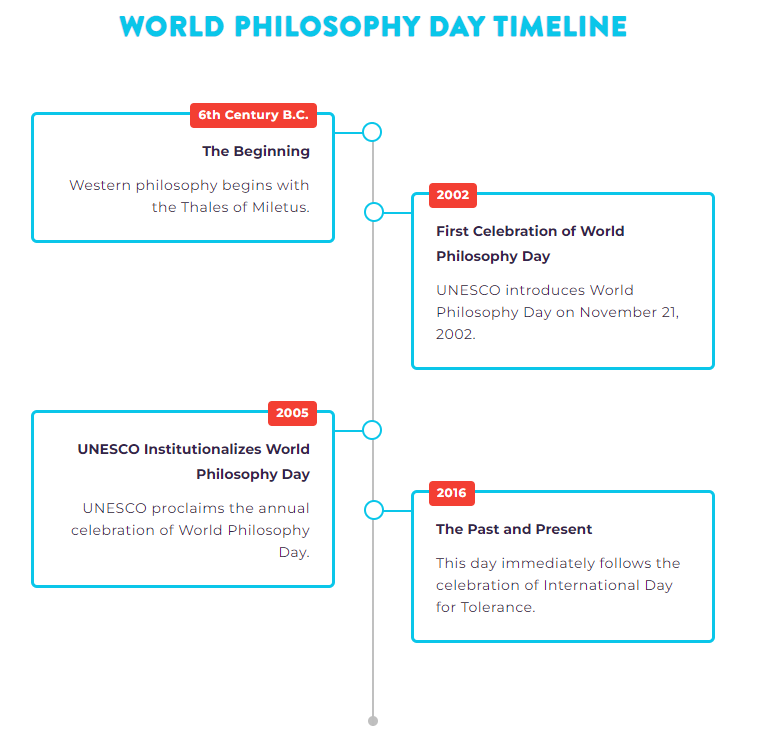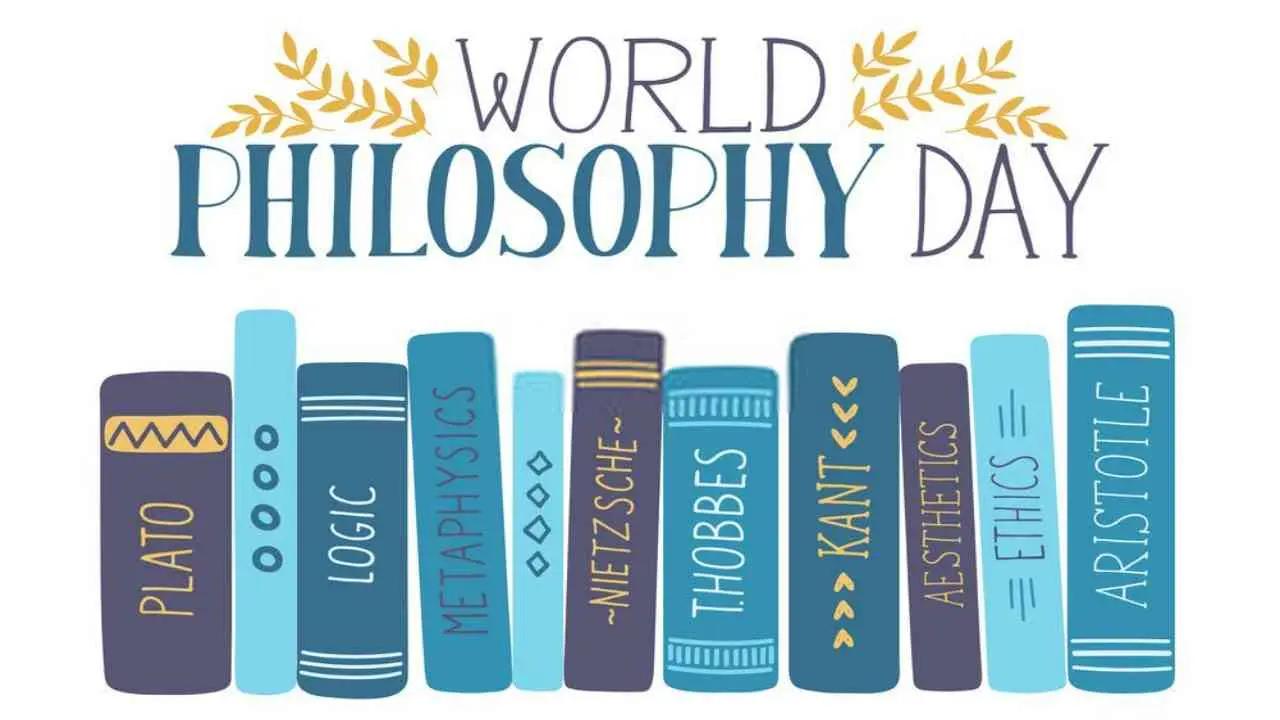By Penny Theodorakopoulou,
Philosophy. A field of studies that dates back centuries ago, back to ancient Greece. Back then, great thinkers like Socrates, Plato, and Aristotle, and presocratic philosophers, such as Thales (fun fact: he introduced philosophy, not Plato or Socrates; so he is the rightful father of philosophy!), Empedocles, Eratosthenes, etc. were wandering around the streets of ancient Athens and pondering about issues that are quite crucial even to this day (the meaning of life, Plato’s Ideas, what is considered virtuous, and many more). UNESCO introduced this world day 20 years ago, on November 21, 2002. Since 2005, it has been decided that every third Thursday of November will be dedicated to philosophy.
When UNESCO’s General Conference established World Philosophy Day in 2005, it emphasized the significance of this discipline, particularly for young people, stating that “philosophy is a discipline that encourages critical and independent thought and is capable of working towards a better understanding of the world and promoting tolerance and peace”. UNESCO’s General Conference of the United Nations Educational, Scientific, and Cultural Organization was convinced that “the institutionalization of Philosophy Day at UNESCO as ‘World Philosophy Day’ would win recognition for and give a strong impetus to philosophy and, in particular, to the teaching of philosophy in the world”.

What is philosophy, though?
Philosophy is the systematic study of broad and fundamental issues, such as those pertaining to existence, reason, knowledge, values, the mind, and language. These queries are frequently framed as issues that need to be investigated or solved. Some sources state that Pythagoras (c. 570-c. 495 BCE) is credited with coining the term; however, other sources contest this assertion. Philosophical tactics include questioning, critical discussion, logical argument, and systematic exposition.
Historically speaking, a philosopher was a person who practiced philosophy, which historically included all fields of knowledge. “Natural philosophy” included astronomy, medicine, and physics from the time of the Ancient Greek philosopher Aristotle until the 19th century. Newton’s 1687 Mathematical Principles of Natural Philosophy, for instance, was eventually categorized as a physics book. Academic philosophy and other fields were more specialized and professionalized in the 19th century as a result of the expansion of contemporary research universities. The social sciences, including psychology, sociology, linguistics, and economics, have since evolved into distinct academic disciplines from numerous fields of study that were formerly included in philosophy.

Modern academic philosophy has four main subfields: metaphysics, which examines the essence of existence and reality; epistemology, which examines the nature of knowledge and belief; ethics, which examines morality; and logic, which examines the principles of inference that permit one to draw conclusions from verifiable premises. Philosophy of politics, philosophy of science, philosophy of religion, philosophy of language, and philosophy of mind are additional noteworthy subfields.
Why do we celebrate World Philosophy Day?
Both a discipline that inspires and a habit that can change societies is philosophy. Philosophy fosters international communication by making it possible to learn about a variety of intellectual currents around the globe. Philosophy contributes to the development of a more tolerant and courteous society by encouraging the exercise of thought and the rational discussion of opposing viewpoints. By fostering the intellectual environment for change, aids in understanding and responding to the most important contemporary concerns.
So, on this day, UNESCO emphasizes the importance of philosophy for the advancement of human thought, for all cultures, and for each individual. The conversation on the various relationships between people and their social, cultural, geographic, and political environments begins on this day with the overarching goal of better understanding the role philosophy plays in modern societies and the issues they face, particularly pandemics.

Why is philosophy necessary in our lives?
Now, onto the second topic of this article: the importance of philosophy’s existence in our lives. “Why is it so important to study philosophical books and know a thing or two about ancient philosophers”, you might wonder. “Because the school made us study in order to pass the exam” is one of the very first answers that come to one’s mind, especially from Greek students; which, if you ask me, is quite ironic, given that it was Greek people (yes, not just men, women too!) that introduced philosophy to the ancient world, and their legacy continues even today.
As a graduand philosophy student, as well as a person who loved the subject of philosophy back in the second grade of senior high school, I will gladly answer the questions above, and I will be as objective and unbiased as possible. First and foremost, as all of us are aware, philosophy contemplates existential — and not only — topics and issues, like how the world was created, the existence of god, our existence in general, what is the best way to live our lives in order to be virtuous, etc. Sure, we can express our points of view about those topics. But do they have any point? I mean, how can one talk about virtue and justice if they do not know what these mean? They have to do a little bit of research so their opinion can have a base and be valid and persuasive.
In addition to that, through philosophy, one can assist themselves in finding solutions to problems and dilemmas, whether they be straightforward or complex. Philosophy is defined in large part by critical analysis and reasoning. Philosophers have argued over how to evaluate and classify various ways of thinking, how to recognize sound reasoning and other topics for years. The discussion never ends. An individual becomes better thinker when they adopt a philosophical attitude and learn to evaluate claims and propositions critically. They are able to determine whether a notion is sound or whether it is predicated on a weak and unreliable foundation.

Along with critical analysis and deductive reasoning, philosophy emphasizes the value of persuasion. Even if you have a strong case supported by a ton of evidence, what good is it if no one else can see it? Rhetoric, or the art of persuasion, has been practiced since antiquity by everyone from politicians to attorneys to poets. With the help of rhetoric and philosophy, one will learn how to construct and deliver arguments in a way that appeals to their audience.
Academically wise, a person sort through anything thanks to philosophy’s emphasis on critical thinking and persuasive arguments. When a concept or argument is not making any progress, one will be able to tell, allowing them to redirect your attention. Philosophy also aids in the development of one’s own viewpoint by utilizing logical, good reasoning based on the research done by the individual. Last but not least, whether they were political or cultural, the majority of history’s most significant developments started as discussions in academia. This is true because caring about everything, including the queries and the act of thinking, is central to philosophy. The study of philosophy challenges people to consider more deeply why things are the way they are and whether they may be improved. Progress is made in this manner.
I am finishing this extended article with a quote by Audrey Azoulay, Director General of UNESCO:
“Words sometimes fail to grasp the complexity of the world and its upheavals. To paraphrase the great philosopher Ibn Khaldun, without the transmission of thought, language is only a barren land. As an antidote, UNESCO works daily to bring philosophy, that universal language of thought, into service in order to identify all the ramifications of the crisis and to clear a common path for humanity.”
References
- World Philosophy Day, wikipedia.org, Available here
- World Philosophy Day, thisday.app, Available here
- World Philosophy Day 2022: The Human of the Future, unesco.org, Available here
- World Philosophy Day, byroncollege.gr, Available here
- World Philosophy Day belongs to everyone, everywhere, who cares about philosophy, unesco.org, Available here
- 10 Reasons Why Philosophy Is Important, theimportantsite.com, Available here




